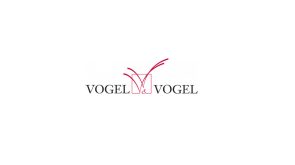As we pointed out previously in our blog entry of 30 October 2013 with regard to Eurotunnel’s buyout of SeaFrance, EU cross-border merger control can sometimes lead to ludicrous situations such as the authorization of a merger in one Member State and refusal in another, thereby placing the undertaking concerned in an untenable position. Following a conflict in the decisions of the French Competition Authority, which had authorized the purchase of assets subject to commitments, and of the UK Competition Commission which had prohibited the transfer, the French Minister for the Economy and the President of the Competition Authority commissioned Fabien Zivy to produce a report on the current handling of “multi-jurisdictional” merger operations within the EU and to analyze all potential areas for improvement, and more generally to make recommendations for the rationalization of European merger control.

A certain number of recommendations have been made for a “simpler, more consistent and more strategic regulatory framework”. Starting from the premise that the referral mechanisms provided for in Regulation No 139/2004 are inadequate to avoid the risk of conflicting decisions, the report suggests that undertakings should be able to request a referral to the Commission of cross-border merger files prior to notification where the merger is notifiable to more than one national authority, but not three – which is currently the case pursuant to Article 4(5). The report also recommends asking national authorities to apply EU merger control law to all mergers which are notifiable in two or more Member States in order to avoid differences in interpretation and application of national laws even when they are fairly similar in content. Further, it favors harmonizing the types of thresholds above which mergers are reviewable in the various Member States (but not their level), by retaining only thresholds expressed in terms of turnover and introducing a model notification form listing standard information to be provided by companies when they notify a cross-border operation. Finally, given that the interaction of national competition authorities only exists within the framework of informal initiatives, the report advocates extending to merger control with certain adjustments, the European Competition Network (ECN, which was set up for the purposes of antitrust enforcement.
The Zivy report’s contribution to the debate is to be commended for pointing out the inherent weaknesses in the multi-jurisdictional control of cross-border mergers, which can lead to conflicting and irreconcilable results, i.e. authorization in one Member State and refusal in another of the same operation – thus creating a high level of legal uncertainty for the parties to such operations. Innovative and effective solutions are offered to prevent and limit inconsistent decisions. In addition, it has the merit of addressing the problem of the divergent nature of national merger control systems, which currently burden companies engaged in multinational merger deals with excessive administrative costs.

 MON COMPTE
MON COMPTE















